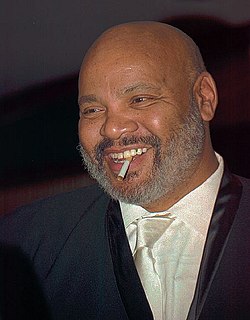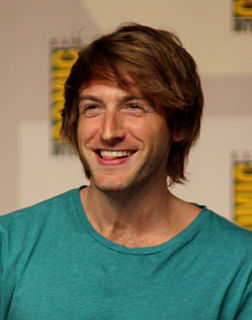A Quote by David Cage
Cinema became what it is today when technology allowed movie directors and actors to develop emotion. You can see into the eyes of the actors and know when they are going to cry.
Related Quotes
I think film is a world of directors. Theater is a world of actors. Or, theater is for actors as cinema is for directors. I started in theater. Filming is as complete as directing film. In theater, you are there, you have a character, you have a play, you have a light, you have a set, you have an audience, and you're in control, and every night is different depending on you and the relationship with the other actors. It's as simple as that. So, you are given all the tools.
The actor has to have some degree of craft, along with the talent. No one tries to laugh except bad actors. No one tries to cry except bad actors. How a character hides his feelings tells us who he is. Most people don't know that, and most actors don't do that. Therefore, there are a lot of actors who put me to sleep, that are considered good actors, but they're predictable and boring. I know how the scene is going to end before it ends.
In this type of cinema, whether working with actors or non-actors, as much as you do direct them, if you allow yourself to be directed by them, then the end result will be much more pleasing. The real and individual strengths of the actors is allowed to be expressed and is something that does affect the audience very deeply.
When I got into the movie business, working with actors was the one thing I was really weak at. I didn't know what to say to actors. They scared me and intimidated me. The actors that I've worked with who have had a lot of experience, or who I've even grown up watching as a kid, were really scary. I was like, "What am I going to say to this person?" But, I've matured. It's fun. I understand what actors do now.
In cinema we have all kinds of ways of communicating: cinematography, lighting, character performance. If you pay attention to silent era movie actors, they are big about postures and really exaggerated expressions so you can understand how they feel. We use all kinds of techniques from cinema to help communicate emotion.
See, the thing that bothers me with young actors, young actors of color specifically, is that they see movies and television, and they figure that's all it is to it. They have no respect for the craft. They want to be, you know, movie stars or whatever. And I worry that we're losing a certain quality, you know?
I don't see myself as one type of actor. When you get one role, you start to get cast in that role for awhile because that's what people have seen you do, and have hopefully seen you do it successfully. And so, it becomes an easier thing to see you as, for casting directors and directors, and they start to think of you as that particular person or type of character. But, for me, I'm just an actor, first and foremost. The actors I respect are the real character actors, who are the real chameleon actors that completely change from role to role.
There's a lot of great writing, and characters, and stories being told in television nowadays. And much more than there used to be. The opportunities to tell stories, because of the opportunities to show content. And so it's drawing actors from cinema, movie actors, actors to where there's a lot of opportunities to where you can tell stories.







































